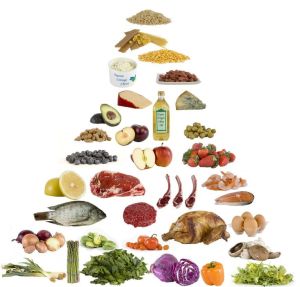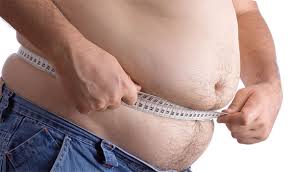Someone is always bringing up this question, and now the WHO (world health organization) has said that processed meats are causing cancer. So, what’s new, didn’t we know that several years ago. I’ll go one step farther and say that all processed foods are harmful to the human body. This article is interesting because it tells both sides of this story. The important point the author brings out is that no one is going to change anyone’s mind about meat. Humans have been eating meat for millions of years, but if you look at this realistically, it’s only been 100 years or so that humans have lived long enough to actually see diseases like cancer in large numbers and realize that cancer is caused by the foods we eat. Finish reading this post and judge for yourself if meat is good or bad for your health. But first, realize that the meat we buy in the stores is not the same as wild game. Wild game is very lean meat because wild game roar all their waking hours looking for food. If you ever ate a wild turkey you would never buy another turkey in the supermarket.
Perhaps no question about diet and health has become more talked about than: “Should we eat meat?” Prosecution and defense were both greatly agitated by the recent WHO (World Health Organization) declaration that processed meats are a carcinogen (cause cancer) and red meat in general.
If meat “caused” cancer, but produced some good, such as enhancing brain or muscle development: well, then, should we, or shouldn’t we eat meat? I prefer fish and white meat chicken or turkey.
This only invites a series of secondary questions. How is the meat of today like, or unlike, Stone Age meat or even 19th-century meat? What do we know about net effects on human longevity and vitality with a shifting emphasis between plant and animal calories, given an abundance of both?
We know, in fact, that the meat that prevails today is far removed from the meat our ancestors ate. We know that life expectancy today is generally twice that, or more, of the Paleolithic, mean. We know that humans and many other mammals can and do thrive on diets that are mostly or even exclusively plant-based and that adaptations to the consumption of both plants and animals mean we have choices. Evolutionary biology clearly allows for meat in the human diet but does not necessarily require it. So what better, meat or no meat?
Animals eat animals in nature, and it does not imperil the planet. But no other animal has so completely disrupted the natural balance among species. But here we are, a global horde of more than 7 billion. Having decided not to control our numbers, we now have little choice but to control our appetites. The environmental implications of Homo sapiens meat consumption are even clearer and more urgent than those directed at our personal health.
For our species to declare meat-eating, per se, unethical is rather absurd. But I think it’s more about the type of meat that we buy in stores.
That, however, is not a real-world issue. To feed the carnivorous inclinations of a massive, global population invites dubious methods that serve economies, and defile ethical standards. We cannot be 7 billion hunter-gatherers, and thus producing meat for our masses means methods of mass production.
Should human beings eat meat? If we humans were many, many fewer; if our lives were much shorter; if the meat in question were much purer; if our activity levels were much higher; if our methods of the acquisition were quick and clean and compassionate; and/or if the resources of the planet were infinite, the answer might well be: sure. But none of those conditions is met in the reality that prevails. In the reality that prevails, the health of both people and the planet, the interests of ethics, epidemiology, and the environment alike, are advanced by humans eating less meat. There is even a case to be made that we “should” eat less meat, in the conventional (and often distasteful) sense of moral obligation. While we are not morally obligated to safeguard our own health, we are, I think we can safely say, morally obligated not to eat our children’s food, or consume our children’s water. We live in a prevailing reality where water is disappearing where it is needed most, and draining glaciers into the sea where we wish it were not. Meat consumption figures in all such mayhem, and thus constitutes a cultural imperative far beyond the limits of our own skin.
There is even a case to be made that we “should” eat less meat. While we are not morally obligated to safeguard our own health, we are, I think we can safely say, morally obligated not to eat our children’s food, or consume our children’s water.
To sum this up, for our own health we should cut back on animal meat, the dietary recommendations are for us to only eat 3 oz. of meat a day, not 3oz. per meal. Most of the western world has been overindulging in animal meat for decades. I believe there lies the problem we have with animal products. Any sensible diet recommends 4 times the amount of grain and vegetables compared to meat. In other words, if you’re eating a 400 calorie meal, only 80 calories should be meat.
Another problem with meat today, most of us don’t buy fresh meat. Some stores don’t even have fresh meat. Supermarkets today, receive their meat cut, packaged, and labeled before it’s shipped. Some supermarkets have no butcher, only people to unpack the meat and place the packages in a display case. Today’s meat isn’t the same as it was for your grandparents. They could buy fresh meat and seafood every day. The butcher would cut their meat while they waited. The meat we buy pre-packaged in the stores today was probably frozen before being shipped to the stores. So, what does the date on the package really mean? Maybe it’s the day the package arrived in the store, so who knows when that meat was cut. So, besides all the hormones in meat today, we have to worry about the preservatives in the meat because the factory where they cut the meat doesn’t want it to spoil before you buy it.
The meat we buy pre-packaged in the stores today was probably frozen before being shipped to the stores. So, what does the date on the package really mean? Maybe it’s the day the package arrived in the store, so who knows when that meat was cut. So, besides all the hormones in meat today, we have to worry about the preservatives in the meat because the factory where they cut the meat doesn’t want it to spoil before you buy it. This alone is enough to change the minds of anyone about red meat.
It’s the excessive hormones and preservatives in our food that cause diseases like cancer. Most of this post are the words of a doctor who turned vegetarian for his own health and I can certainly understand. I also know that most of us will never be vegetarian but we can cut back on meat consumption for the sake of our health.
Look for my podcasts on anchor.fm, or the podcast app on your cell phone. Search “howbaddoyouwanttoloseweight".
If you really want to lose your body fat then look for my e-books at the websites listed below. You’ll get information on Healthy eating, exercise, and diet. Instead of spending hours on the internet reading dozens of posts, you can save time by picking up one of my e-books.
There are two e-books. “How Bad Do You Want To Lose Weight?” is available at all the online bookstores selling for $3.99. Go to any of the websites below and search the title to find my e-book. This book gives you all you need to lose weight without spending money on gym memberships, diet plans, or meal plans. Look for my book. at Amazon.com, B&N.com, iBooks, Kobo.com, Scribd.com, or Gardner Books in the U.K.
My new e-book is available on Smashwords.com, just type “getting to a Healthy Weight” in the search box at the top of the home page.







